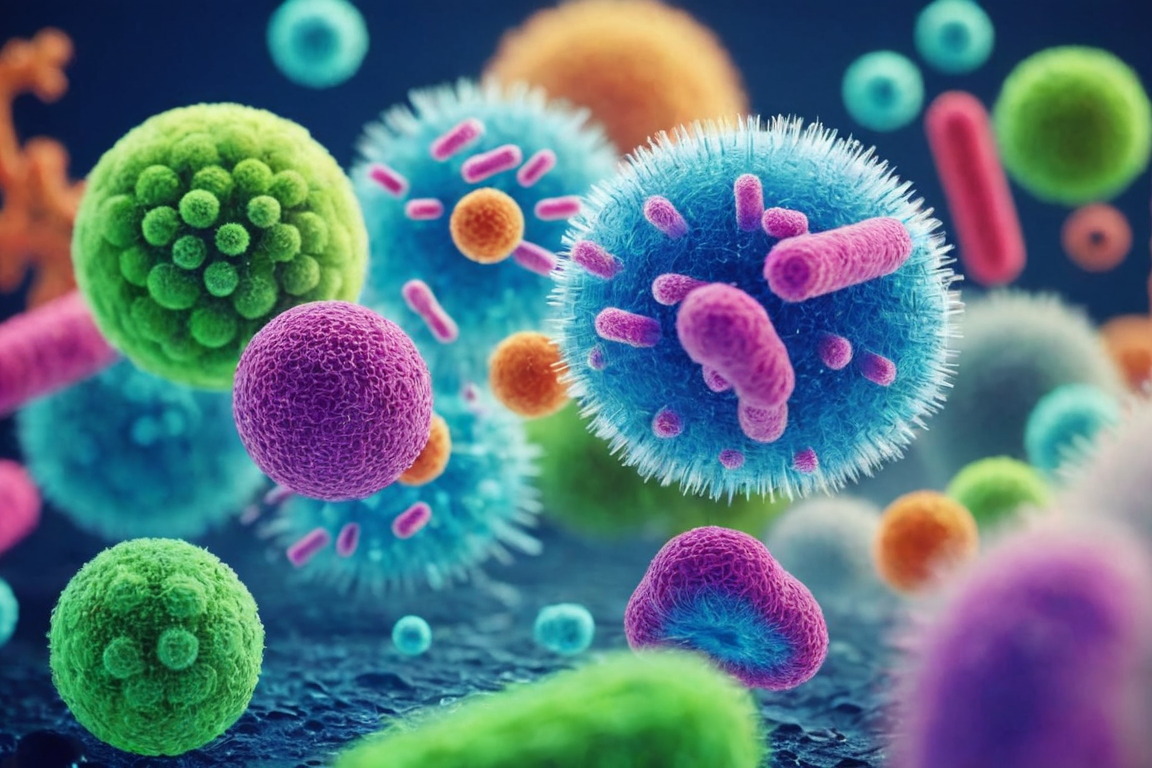The Gut Microbiome: A Hidden Ecosystem Within 🌍
Deep within our bodies lies an intricate ecosystem teeming with trillions of microscopic organisms – our gut microbiome. This diverse community of bacteria, fungi, and other microbes plays a crucial role in our overall health and well-being. From digesting food to regulating our immune system, the gut microbiome is a vital ally that we often overlook.
Maintaining a healthy balance of these gut inhabitants is crucial, as an imbalance can lead to various health issues, including digestive problems, allergies, and even mental health disorders. Enter probiotics, the promised heroes that claim to restore and maintain this delicate equilibrium. But do they truly live up to their hype? 🤔
Probiotics: Dissecting the Meaning and Purpose 💊
The term “probiotic” comes from the Greek words “pro” and “bios,” meaning “for life.” These living microorganisms are touted as beneficial for our health, particularly our gut health. Probiotics are found in various forms, including supplements, fermented foods like yogurt and sauerkraut, and even some beverages like kombucha.
The primary goal of probiotics is to support and enhance the beneficial bacteria in our gut, helping them outcompete and balance the potentially harmful ones. They achieve this through various mechanisms, such as producing lactic acid, which creates an acidic environment that inhibits the growth of harmful bacteria. Additionally, probiotics are believed to strengthen the gut barrier, reducing the risk of leaky gut and related issues like allergies and inflammation. 🛡️
The Catch-22: When Probiotics Might Not Work 🚫
While the concept of probiotics seems straightforward, there’s a catch-22 that often goes unnoticed. If your gut microbiome is already in a healthy state, you may not need probiotics as your existing beneficial bacteria are already doing their job. However, if your gut is dysbiotic (out of balance), introducing probiotics may not be enough to restore the balance.
The reason for this paradox lies in the fact that probiotics are essentially seeds that need fertile soil to grow and thrive. If your gut environment is akin to a paved-over parking lot, no amount of probiotic seeds will take root and flourish. This situation is unfortunately common due to the widespread use of antibiotics, excessive consumption of sugar, processed foods, and the chronic stress that plagues modern lifestyles. 😩
Cultivating the Ideal Environment for Gut Health 🌱
To truly benefit from probiotics, the focus should be on cultivating a hospitable environment for these beneficial microbes to flourish. This involves addressing the root causes of gut dysbiosis, such as:
- Reducing Antibiotic Use: Antibiotics, while necessary in some cases, can indiscriminately kill off both harmful and beneficial bacteria, leaving your gut vulnerable. 💊
- Eliminating Processed Foods and Excess Sugar: These feed the opportunistic, potentially harmful bacteria, giving them an advantage over the beneficial ones. 🍭
- Managing Stress: Chronic stress activates the sympathetic nervous system, which suppresses the parasympathetic nervous system responsible for essential gut functions like digestion and motility. 😰
By addressing these factors, you can begin to create a hospitable environment for probiotics and beneficial bacteria to thrive.
A Holistic Approach to Gut Health 🧘♀️
Restoring gut health is a journey that requires a holistic approach. Here are some steps you can take:
- Embrace Whole Foods: Focus on consuming a diet rich in whole, unprocessed foods, especially those high in fiber like vegetables, fruits, and legumes. These provide nourishment for your beneficial gut bacteria. 🥕🥦
- Incorporate Fermented Foods: Fermented foods like sauerkraut, kimchi, and yogurt naturally contain live, active cultures that can help seed your gut with beneficial bacteria. 🥙🥛
- Prioritize Sleep and Stress Management: Adequate sleep and stress-reduction techniques like meditation, yoga, and deep breathing exercises can help balance your nervous system and support gut health. 😴🧘♂️
- Consider Professional Guidance: If you suspect a significant gut imbalance, seek guidance from a qualified healthcare professional. They can recommend personalized strategies, including testing and targeted supplementation, to help restore your gut microbiome. 👩⚕️
The Verdict: When and How to Use Probiotics 💡
Probiotics can be a valuable tool in supporting gut health, but they should be approached with realistic expectations and a holistic mindset. Here are some recommendations:
- Be Patient: If your gut is severely dysbiotic, probiotics alone may not be enough initially. Focus on creating a favorable environment first before introducing them. 🕰️
- Consider Timing: Take probiotics on an empty stomach for optimal delivery to the gut. Stomach acid can kill off many probiotic strains when taken with meals. ⏰
- Seek Professional Guidance: If you’re unsure about your gut health status or which probiotics to take, consult with a qualified healthcare professional who can guide you through testing and personalized recommendations. 🔬
- Rotate Strains: Consider rotating different probiotic strains periodically to promote diversity in your gut microbiome. 🔄
Remember, probiotics are not a one-size-fits-all solution. They can be a valuable addition to a comprehensive gut health strategy, but they should be approached with realistic expectations and a holistic mindset. By cultivating a favorable environment and adopting a gut-friendly lifestyle, you can maximize the potential benefits of probiotics and promote a thriving, balanced gut microbiome. 🌈
Copyright © 2025 Hea1th.net

